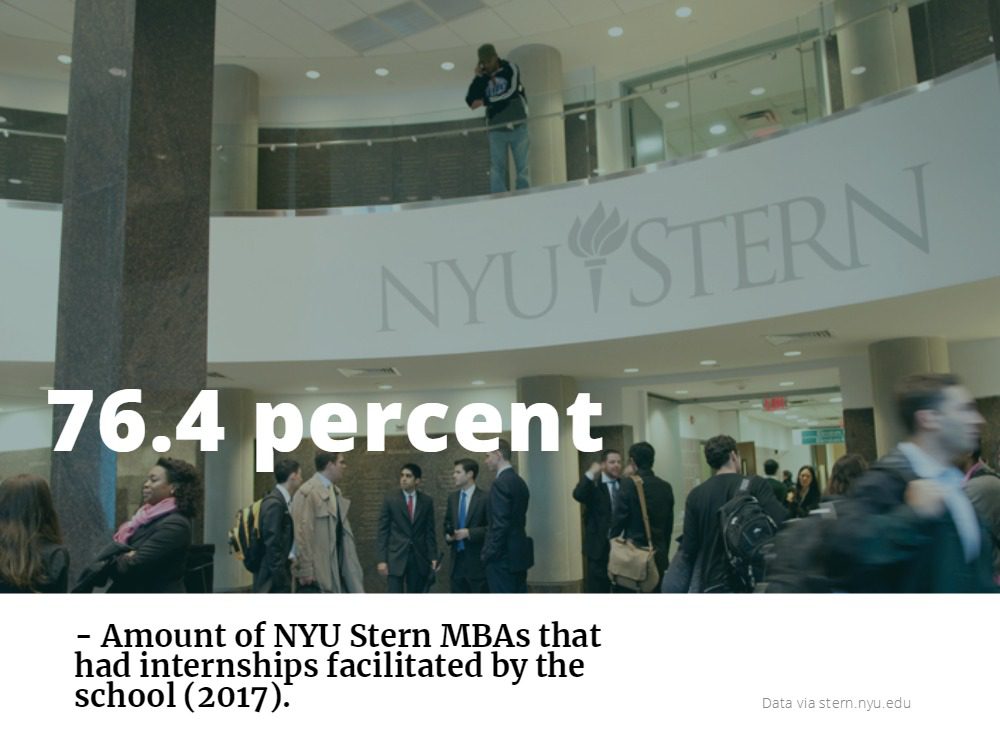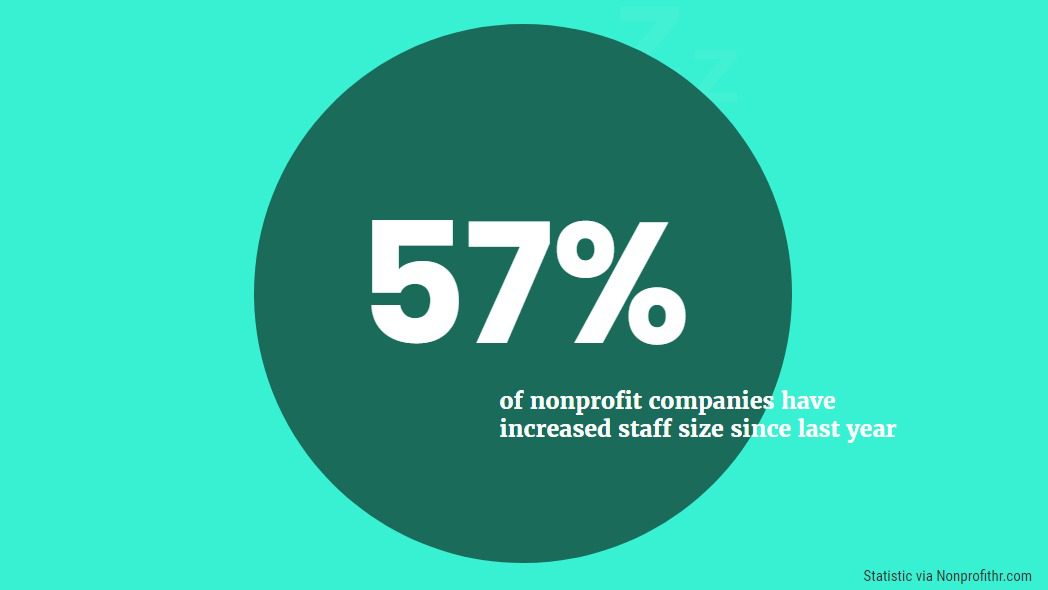Columbia MBA Students Discuss Leadership and Impact in the Nonprofit Sector

If you’re looking for professional development opportunities and ways to make an impact, serving on a nonprofit board might be the perfect outlet. At least that’s what many Columbia Business School students are discovering. The latest trend at CBS is joining a junior board of directors for nonprofit governance.
What is a Nonprofit Junior Board?
“Sometimes called associate boards or leadership councils, these assemblies of young business leaders—typically under 35 years of age—bolster their organizations through mission-critical initiatives such as fundraising and public outreach,” explains CBS news.
These boards are an opportunity for MBA students to explore the nonprofit sector while also gaining essential business development skills. Students walk away with training in the mechanics of managing a nonprofit.
According to the CBS Tamer Center for Social Enterprise, it’s a great way to give back to the community while also enhancing a student’s resume. Serving on a board offers opportunities for networking, working abroad, and more. According to a panel discussion, “members can expect to get much more out of the experience than the time and resources they are expected to give.”

From networking to grassroots organizing, sitting on a junior board of a nonprofit gives Columbia Business School students a unique opportunity to build a helpful future.
Junior Boards and Nonprofit Governance
At CBS, junior boards have become a staple in the nonprofit community. It’s a way for organizations to gain fresh ideas from young talent. For example, Lindy Gould (MBA ’19) built a junior board from the ground up for the Clinton Foundation during her spring internship. But that’s just one example.
There are many board opportunities and board matching services to help students find their perfect fit. The CariClub lists more than 1,000 boards on its platform, and the annual Nonprofit Board Showcase at CBS provides a unique opportunity for students and alumni to meet representatives from nonprofit organizations.
As for getting on a junior board, it varies depending on the organization. Some require a formal process, which means lots of networking. Others are open to the idea as long as you are passionate about the organization and are willing to reach out.
Sitting on a Junior Board
Most often, junior boards have no fiduciary responsibilities. Instead, these boards are typically focused on fundraising goals either through soliciting donations or the members donating themselves. The average commitment is around $1,000, but most members raise even more.
Outside of raising funds, membership on a board provides an excellent platform for students to demonstrate what they care about and to make a difference. You can learn more on the Columbia Business School website.
This article has been edited and republished with permissions from its original source, Clear Admit.
What is a Summer Internship and Why Should I be Interested?

The idea of an internship may evoke images of coffee runs and paperwork for many business students, but in reality summer internships can be a crucial—and incredibly lucrative—part of every student’s business education and early career.
Around the country and world, top companies open their doors each summer for students interns to gain on-the-job experience, make professional connections, and get a glimpse at what their post-MBA future has in store. Many business schools now even require an internship between a student’s first and second years in their MBA program.
But what really is a summer internship, and why is it seen as so important for MBA students? We take a look at why the summer internship plays such a crucial role for business students, and the ways you can make the most of your experience.
What is a Summer Internship?
Although the idea of internships began as an opportunity for medical students to gain hands-on experience in the field, they can be found today in nearly every industry, organization, and type of institution. From massive corporations to the smallest nonprofit, summer internships have become a key part of both running a business and starting a career. And with the win/win nature of most summer internships, it’s understandable why: the student gets to spend their summer break making connections, gaining experience, and often making money, while the company gets temporary help from someone who just might eventually become a dedicated employee. Because of the invaluable on-the-job skills attained during an internship, many business schools now even require them between a student’s first and second year.
But the reason to get a internship goes beyond the experience that can be gained over the course of a summer or semester: a LinkedIn survey looked at the 3.5 million users with internships in their job history and discovered 600,000 users who returned to those same companies in full-time positions. Furthermore, he industries in the survey that boasted the highest likelihood of an internship becoming a full-time job are well aligned with an MBA’s experience—31 percent of internships in accounting and 25 percent of internships in management consulting became full-time jobs.
Even for those who don’t return to the same company they interned for to work full-time will find that having an internship on their resume speaks volumes for potential employers. With 86 percent of employers looking to hire recent MBA graduates (according to a GMAC survey)—a figure that continues to grow—it’s more important than ever to be able to easily demonstrate your value and experience to prospective employers.
How Do I Find a Summer Internship?
While it’s not impossible for students to venture out on their own and apply directly for internships they want, one of the best parts of being in an MBA program is having the support and resources of the business school behind you. Especially since so many programs now require internships as part of the MBA process, the university has become a crucial part of helping students to find the perfect internship for their interests and career goals.
A quick look at employment reports from a major university like NYU’s Stern School of Business can reveal just how important a school’s career development office can be when it comes to finding that perfect internship. At NYU Stern, 76.4 percent of internship offers accepted by the Class of 2017 were facilitated by the school, compared with just 23.6 percent initiated by the students. And while roughly half of the offers initiated by students came from existing personal contacts, the school facilitated offers came from a variety of different sources. Whether it was on-campus scheduled interviews at the school, job postings, Stern supported activities like clubs and conferences, business school alumni or career fairs, the school was able to lead students to internships in consulting, entrepreneurship, healthcare, media and entertainment, and more.

Why Other Benefits are There to a Summer Internship?
Even if the thought of building a professional network and opening the potential for full-time employment through an internship sound appealing, it’s likely you still have money on the mind. It’s understandable, too, since so much of the discussion surrounding internships today bring one word to mind: unpaid.
It’s certainly true that unpaid internships make up a large portion of the summer internships that are available, and for many students it’s not fiscally possible to lose a summer of working to gain professional experience. Thankfully, business schools understand this and strive to find students internships that will not just fit their career goals but their financial goals as well.
Due to the level of the work and time commitment, most internships for MBAs are paid, and often pay quite well. So no need to sacrifice career growth for summer funds—in fact, the two things go together perfectly! While it varies slightly by industry, summer interns in the Class of 2018 at Northwestern University’s Kellogg School of Management made a monthly average salary of anywhere from $3,500 (nonprofit industry) to $10,734 (consulting).
Summer internships can be a crucial part of the MBA experience, and it’s clear to see why: with the potential of an internship to turn into a full-time job and the financial benefits of the experience, MBAs should be banging down the door for the opportunity. But thankfully they don’t have to. Business schools and their career development offices have made it a priority to get students the internship of their dreams at the salary perfect for their wallets.
3 Washington DC Nonprofit MBA Programs You Need To Know

It’s fair to say that the finance and consulting industries are the most popular for business school grads. But what about non-profits and social enterprises—where do they rank? While some assume that an MBA and working for a nonprofit do not go hand-in-hand, that’s not the case.
According to Fast Company, the nonprofit sector is the third-largest segment of the U.S. workforce, employing more than 13.7 million people at 1.8 million organizations, accounting for 10 percent of the country’s total workforce. The sector is the seventh-largest economy in the world—with combined assets of nearly $3 trillion, the U.S. nonprofit sector is larger than the economies of Brazil and Russia, and its neighbor to the north is taking notice. According to Nonprofit HR, in 2015, 50 percent of nonprofits were hiring compared to just 34 percent of for-profits. Nonprofit wages have also increased by 29 percent between 2000-10 and continue to rise, and exciting jobs in the sector are perfect for MBAs.
Some schools run entire centers and initiatives dedicated to the idea of social change. Other schools offer social entrepreneurship coursework, concentrations and graduate certificates with their MBA program. Here’s our rundown of three nonprofit MBAs in the Washington DC metro.
George Washington University School of Business
Students enrolled in the GWSB MBA program may combine their advanced business degree with a graduate-level certificate. One certificate program offered by the school is the Graduate Certificate in Nonprofit Management. This program is intended for students hoping to advance their careers in the nonprofit sector, as well as students who want to expand their knowledge but who do not want to commit to a master’s degree program.
The certificate requires that students complete 12 credit hours and maintain at least a 3.0 grade point average in order to be awarded the Graduate Certificate. Sample coursework includes:
- PPPA 6031 – Governing and Managing Nonprofit Organizations
- PPPA 6032 – Managing Fund Raising and Philanthropy
- PPPA 6016 – Public and Nonprofit Program Evaluation
- PPPA 6033 – Nonprofit Enterprise
- PPPA 6034 – Managing Nonprofit Boards
- PPPA 6053 – Financial Management for Public, Nonprofit, and Health Organizations
- PPPA 6058 – International Development NGO Management
The Graduate Certificate in Nonprofit Management program is available at the George Washington University’s main campus in downtown Washington DC.. Certificate students enroll in regular courses of the Trachtenberg School and earn graduate credit. Regular graduate tuition and fees apply.
Kogod School of Business – American University
The Kogod School of Business at American University also offers a Graduate Certificate in Nonprofit Management. According to the school, the certificate provides those currently working in the nonprofit sector a program combining both academic rigor and skill set training to enhance their performance in this growing work sector, as well as a foundation for master’s degree students about to enter the field.
The certificate program requires 18 credit hours of approved coursework with at least 9 credit hours at or above the 600-level and encompasses course offerings from the School of Public Affairs, the Kogod School of Business, and the School of Communication, as well as select coursework from the School of International Service and the College of Arts and Sciences.
Sample coursework includes:
- ACCT-607 – Financial Accounting
- FIN-630 – Financial Analysis of the Firm: Concepts and Applications
- COMM-642 – Strategic Communication Management
- MGMT-609 – Management of Organizations and Human Capital
- MGMT-633 – Leading People and Organizations
- PUAD-681 – Managing Nonprofit Organizations
University of Maryland R.H. Smith School of Business
The UMD Smith Dingman Center of Entrepreneurship and Center for Social Value Creation offer several different venues and opportunities for students to explore social entrepreneurship. According to the school, the Center for Social Value Creation was founded in 2009 and aims to educate, engage and empower Smith students to employ business principles that help not just the bottom line, but also the world. You can learn more about the UMD Smith Center for Social Value Creation here.
Students can pitch business ideas with a social mission through the Center’s Pitch Dingman program, or receive support and resources for their own social enterprises. The Center for Social Value Creation offers graduate coursework in social entrepreneurship at both the undergraduate and graduate levels, and leads Social Innovation Fellows, a one-year program that gives Smith School undergraduate students hands-on opportunities to seek innovative solutions for social and environmental challenges through the application of business principles.
To learn more about using your MBA for a nonprofit career, take a look at our “Should MBAs Work in the Nonprofit Sector” post. Check out our list of the top 10 nonprofit MBA programs in the country for even more options and information.
In Search of San Francisco’s Best Nonprofit MBA Programs

Even though San Francisco may be thought of as the place to be for entrepreneurship and technology, the city is home to a diverse community of organizations both private and public, both for and not-for-profit.
Business professionals in the city can apply their business acumen and education in a number of ways, whether helping a new venture get on its feet, contributing to some of the largest tech firms in the world, or supporting a mission they’re passionate about. And though such mission-driven organizations center around the cause and not of profit-making, having a strong business leader at the helm is crucial in helping these organizations to achieve their mission.
Students interested in gaining critical operations and management skills to apply in the nonprofit sector may be interested in pursuing an MBA in Nonprofit Management. Professionals with this degree have moved on into major leadership roles in the nonprofit field, whether working as a Nonprofit Program Director, Development Director, or Community Outreach Coordinator. Nonprofit managers are able to flex their muscles in finance, marketing and a number of other areas of business while still focusing their passion on a broader mission of change or aide.
A few business schools in the San Francisco metro area offer the chance for students to focus their MBA in the field of Nonprofit Management, offering a diverse skill set of nonprofit experience combined with a strong business foundation. Below, you can explore the San Francisco MBAs in Nonprofit Management.
San Francisco Nonprofit MBA Programs You Need To Know
Haas School of Business – UC Berkeley
The Haas School of Business at UC Berkeley offers an MBA concentration in Social Sector Leadership through the university’s Center for Social Sector Leadership. Ranked second overall among business schools with a nonprofit focus by U.S. News & World Report, the Haas program trains up-and-coming business leaders to make a social impact and inspire collaboration between sectors.
The Center for Social Sector Leadership offers students a wide variety of courses to take that can help shape various careers in the social sector, such as nonprofit consulting, board leadership, and strategic or financial nonprofit management. In addition to learning inside the classroom, the center also provides a number of opportunities for experiential learning, such as the Berkeley Board Fellows, which places graduate students on nonprofit boards of directors, or the Haas Impact Investing Network, which offers first-hand experience in impact investing for socially-minded MBAs around the country.

San Francisco State University College of Business
The College of Business at San Francisco State University offers at MBA Emphasis on Nonprofit and Social Enterprise Leadership. With the goal of preparing students to take their business skills to mission-driven organizations, the program will teach students to create a coherent organizational vision, apply innovative solutions to address needs, and evaluate the effectiveness of an organization’s programs in meeting goals.
Students in the Nonprofit and Social Enterprise Leadership emphasis will take the core MBA course requirements as well as three courses for their major: Nonprofits, Policy and Society; Innovation for Sustainability; and Seminar in Social Entrepreneurship, or Strategies in Emerging and Developing Economies. Students will also select two electives that can help further shape their education in leadership and creativity.
Stanford University Graduate School of Business
The Stanford Graduate School of Business offers MBA students the opportunity to pursue a Certificate in Public Management and Social Innovation as part of their degree. Through the university’s Center for Social Innovation, MBA students can explore the social sector and prepare for roles as forces for social change throughout the nonprofit, philanthropic, government, or corporate spheres.
To pursue the certificate, MBA students must complete a social innovation experience that allows them exposure to populations affected by a particular social or environmental issue. Students may also work alongside leaders making contributions in the field to fulfill the requirement.
For more on how MBAs are making a greater social impact, check out how these students are making a difference in their own unique way.
The Best Nonprofit MBA Programs in Los Angeles

Many believe that business is inherently selfish. However, there are a plethora of nonprofit organizations that could not exist without the skills of talented administrators, dedicated solely to the business and financial aspects of the company. MBA skills are coveted in the nonprofit industry, as they can make a massive contribution to helping the organization thrive.
Many MBA programs take into account the need for overlap in business and social change. Below, we’ve laid out three of the best Los Angeles programs for MBAs looking to pursue nonprofit work.
The 3 Best Los Angeles Nonprofit MBA Programs
Anderson School of Management—UCLA
The UCLA Anderson School of Management MBA program offers a specialization in Social Impact for students hoping to use their business acumen to have a positive influence on their community, both locally and globally. This program provides ample opportunities for students to better parts of the world through innovation and creative problem-solving, positioning them to pursue a career in the nonprofit arena, if that is their goal.
International Field Study Projects are an integral part of the nonprofit learning experience. For their second year Capstone Projects, all Anderson MBA students can choose to pursue the Applied Management Research (AMR) program. The AMR Projects give students a chance to work with companies and nonprofits to solve a strategic problem. Many of the AMR Projects help struggling communities. In 2017, a group of students tackled building a model to improve screening and treatment of non-communicable diseases to a rural village in South Africa.
SEE ALSO: “The Most Affordable Los Angeles MBA Programs”
Marshall School of Business—USC
Marshall School of Business at USC partnered with Zelikow School of Jewish Nonprofit Management at Hebrew Union College-Jewish Institute of Religion to provide students with the chance to obtain a dual degree (MBA/M.A.) in Business Administration and Jewish Nonprofit Management. The M.A. emphasizes both nonprofit management and Jewish studies. This challenging track requires 88 units of coursework as well as two years of fieldwork. Students in this program can take a 12-month internship in Sacramento, CA or Washington DC while continuing to attend classes in these areas. This track is ideal for students pursuing a career in the Jewish nonprofit sector, and includes classes like Nonprofit Management and Leadership and Grant Writing Practicum.
Peter F. Drucker and Masatoshi Ito Graduate School of Management—Claremont Graduate University
The Peter F. Drucker and Masatoshi Ito Graduate School of Management dual degree in Public Health and Business Administration is an excellent option for students seeking a career in the nonprofit healthcare field. This MBA/MPH allows students to combine business acumen with an exhaustive knowledge of the intricacies of public health over the course of three years. Though this program does not exist exclusively to educate students in the nonprofit sector, the combination of healthcare and business education makes these grads a perfect fit for health care-related nonprofit work. Students will also benefit from the knowledge of professors like Jay Prag, Ph.D., who serves on the board of directors at LINC Housing, a nonprofit low-income housing developer, and whose research often delves into the nonprofit world. This program will enable students to use business skills to increase the effectiveness of healthcare institutions in their communities, as well as internationally.
Chicago Business Schools Prepare Students For Future Careers in Nonprofits

According to the Chicago Tribune, Windy City nonprofits reported a surge in spending and staffing in recent years. An annual survey by the CBRE Group, one of the world’s largest real estate companies, showed that 35 percent of Chicago-area nonprofits planned on expanding staff or office space, up from 24 percent reported in 2011. Additionally, 20 percent reportedly planned on increasing advocacy and marketing budgets, outpacing national averages. Continue reading…
